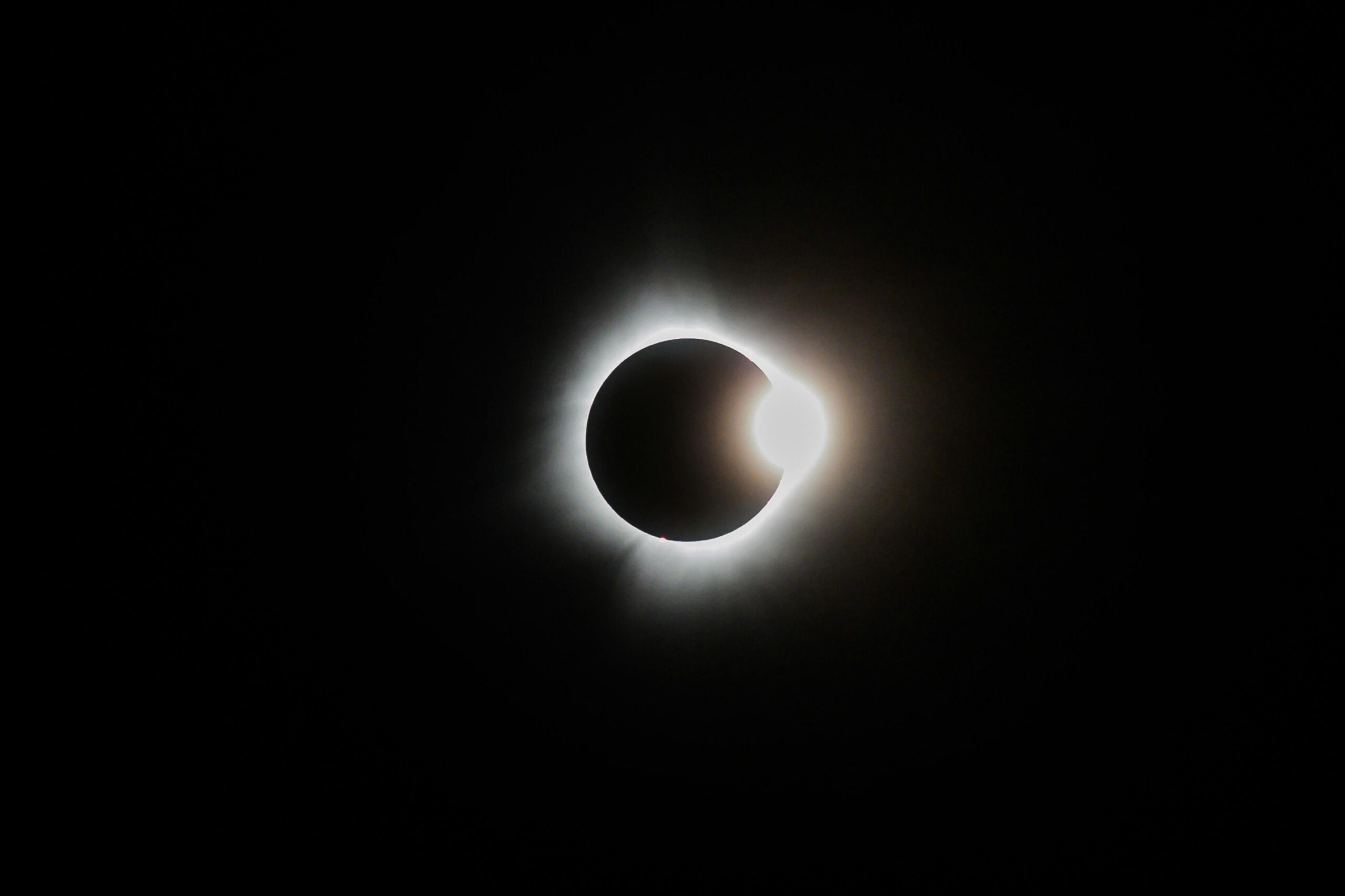
07 Apr The 2024 Solar Eclipse
One of nature’s most exciting visual events is coming up next month— The 2024 Total Solar Eclipse
A solar eclipse will cross North America and will pass across Mexico, the United States and Canada on April 8, 2024. This type of astrological event only occurs once every 18 months somewhere across the globe. In Illinois, eclipses do not happen nearly as often. The last one
was 7 years ago and the next one not until 2044.
The path of the 2017 Total Solar Eclipse in Macanda, Illinois. One of the best views in the state will be in downstate Macanda, Illinois. The last eclipse occurred in 2019. Last time, the eclipse’s path came directly through the tiny little town’s downtown area. The village was so excited by the solar eclipse’s path that even today there is a painted stripe on the pavement showing where the eclipse traveled.
A solar eclipse is when the moon blocks the path of the sun’s light rays that are traveling to Earth. The effect is that slowly, almost imperceptibly so, the sun slowly but surely disappears. But don’t worry, the sun will reappear on the other side of the moon and all will go back to normal daylight. With any hope, the meteorological conditions will be right for the event allowing a clear view of this astrological wonder. Clear skies and no rain are what eclipse viewers hope for.
Safety is the number one priority when viewing an eclipse. It is very important to never look directly at the sun as the sun’s powerful ray’s and ultra-violet light can permanently damage your eyes. Viewing the sun through binoculars, a telescope or other devices without protective
eyewear will instantly cause severe eye injury! During the partial phases of solar eclipse you must use protective glasses designed for eclipse viewing. When the eclipse is in totality, it will appear to be like dusk outside with the moon blocking the sun’s light. Sunglasses are NEVER
safe for viewing a solar eclipse. Regardless of how dark the lenses are or whether or not the lenses are polarized, you cannot use them to see a solar eclipse without causing eye damage. Also, do not use eclipse glasses with other devices such as cameras, binoculars or telescopes. Those types of devices require special types of solar filters. The safest solar-viewing carry the ISO compliance label on their packaging. The only time you can view the sun is during complete totality—- when it’s dark. Warning, this only lasts for seconds and then the sun will
begin its’ reappearance from the other side. Leave your safety glasses on Disposable paper ISO approved safety glasses designed for eclipse viewing.
It’s not too late to get your eclipse glasses. Many online retailers offer them and can get them to you within a few days. But do not delay—- you don’t want to miss out! They average about $20 for a dozen paper glasses with protective lenses. Look for solar-viewing glasses marked as being in line with the ISO12312-2 (sometimes labeled as ISO 12312-2:2015) international safety standard. Some institutions will even distribute them for free! Solar Eclipse Activities for Libraries (SEAL) has the nation’s most extensive solar eclipse outreach program. SEAL has distributed over 5 million solar viewing glasses among 13,000 American libraries. Be sure to check in with your nearest library to see if they participate.

Another way to view the eclipse is through a pinhole projector— an indirect method of viewing. A pinhole projector has a small opening that will broadcast a shadow onto a surface. With your back to the sun, project the image on a flat surface like a piece of cardboard and you can
watch the movement of the sun through the shadow.
A home-made pinhole eclipse viewer. If you wear prescription eyeglasses or contacts, you may be worried about missing out. Eclipse viewing glasses can be worn right over contact lenses or eyeglasses if they fit over them. Eclipse glasses are not meant for seeing, but rather for protection or to be used as a shield. So be sure to order your ISO safety glasses and get yourself ready for an astrological treat— a
Total Solar Eclipse. April 8th will be here before you know it and you will not want to miss the big event!

Sorry, the comment form is closed at this time.